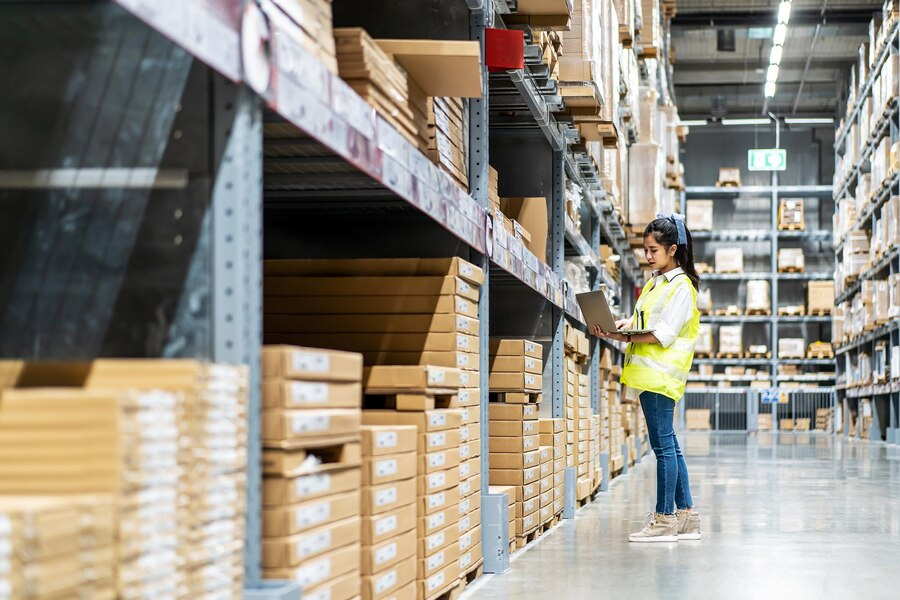In-House Fulfillment vs. Outsourcing in Canada: Which One is Right for Your Business?
Operating a successful online company depends critically on e commerce fulfillment in Canada. Whether you run a small startup or a seasoned store, your approach to order fulfillment will affect general profitability, operational effectiveness, and customer satisfaction. Whether to handle fulfillment in-house or outsource it to a third-party logistics (3PL) supplier will be among the most important choices you will have to make. Both choices offer benefits and cons; the best one for your company will rely on its long-term objectives, budget, and demands. We will discuss the main variations between in-house fulfillment and outsourcing in this blog, thereby guiding you to choose the best fit for your company.
Knowing In-House Satisfaction
In-house fulfillment is the practice of handling order processing, storage, and shipment inside of an organization. Companies utilizing this strategy manage all fulfillment-related chores—including warehousing, inventory control, picking, packing, and shipping—within their own facilities.
More control is among the main advantages of internal fulfillment. All operations happen within your roof, hence you can keep complete control over shipping, packaging, and inventory. Increased customizing made possible by this is especially helpful for companies that provide tailored goods or call for specific packaging. Furthermore, since direct control over fulfillment eliminates a third-party intermediary, it helps to resolve issues quickly.
Internal fulfillment does, however, provide some major difficulties. It first calls for a large upfront outlay in warehouse space, tools, and technologies. Companies also have to recruit and equip employees to effectively oversee fulfillment processes. Growing order volumes make growing an in-house fulfillment system challenging and expensive. Inadequate infrastructure allows inefficiencies in storage and shipping methods to cause delayed delivery and unhappy consumers.
Outsourced Fulfillment has Some Advantages
By contracting fulfillment to a third-party logistics (3PL) vendor, enterprises can make use of the infrastructure and knowledge of specialist companies. On behalf of their customers, 3PL providers manage inventory, order processing, shipping, and warehouse handling so freeing companies to concentrate on other areas of expansion.
The scalability of outsourcing is among its most important benefits. A 3PL supplier can readily handle higher order quantities as your company expands without making significant infrastructure or people investments necessary. Many 3PLs also have several warehouse sites, which speeds and more reasonably cost shipment across Canada and beyond. Businesses wishing to provide consumers with quick shipping choices especially benefit from this.
Fulfilling orders outsources also helps to simplify operations. Running an in-house fulfillment system calls for handling everything from warehouse management software deployment to supply chain coordination. Working with a 3PL helps companies to offload these tasks and concentrate on marketing, product development, and customer support.
Comparing Costs: Outsourcing vs. In-House
Making decisions between in-house fulfillment and outsourcing mostly relies on cost. Along with continuing costs like personnel, utilities, and insurance, in-house fulfillment calls for large capital investment in warehouse space, equipment, and technology. Maintaining an in-house operation gets costly as the company grows even if it might save costs for companies with low order volumes.
Conversely, outsourcing presents a more consistent cost profile. Most 3-PL companies charge companies depending on variables such as order volume, storage space use, and shipping expenses. This paradigm lets companies scale fulfillment activities free from the weight of set overhead costs. Furthermore, 3PL companies sometimes have ties to shipping carriers, which lets them bargain for reduced delivery prices, thereby saving money overall.
3PL Healthcare Logistics: Their Function
For companies in the healthcare sector, fulfillment calls for further factors such specialized packaging, temperature-regulated storage, and adherence to health standards. Handling these particular needs is the area of expertise for 3PL healthcare logistics providers, who make sure medical supplies, drugs, and treatments are transported under the correct conditions.
By contracting with a specialist 3PL supplier to handle healthcare fulfillment, companies may guarantee regulatory compliance while maintaining supply chain efficiency. These suppliers lower the risk of product damage or regulatory infractions by having the required infrastructure to manage delicate healthcare items. They also give tracking and monitoring tools with a view into inventory levels, therefore enabling companies to keep ideal stock levels and avoid shortages.
Important Considerations for Selecting In-House or Outsourced Fulfilment
Businesses should weigh several important criteria while determining whether to outsource or keep fulfillment in-house:
Business Size and Growth Rate: Outsourcing could offer a more scalable answer if your company is fast expanding and seeing rising order quantities.
Comparatively to working with a 3PL, evaluate the long-term expenses of in-house fulfillment including warehouse space, labor, and technology against the variable costs.
Companies needing specific packaging, temperature-regulated storage, or industry compliance could find value in a customized 3PL supplier.
Working with a 3PL will enable you to satisfy your clients' needs should quick and affordable shipments top importance them.
While companies aiming to simplify operations may choose to outsource, those who give control top priority over their fulfillment operations could want an internal method.
In Essence
Making the crucial choice between outsourcing and in-house fulfillment will affect the scalability and effectiveness of your online store. Although in-house fulfillment offers more control and customization, it calls for a large financial outlay. For expanding companies, outsourcing to a 3PL provider presents scalability, cost-effectiveness, and logistical knowledge as well as other benefits. Your long-term success in the Canadian e-commerce industry will be supported by the best fulfillment strategy you choose after closely assessing the demands, budget, and expansion possibilities of your company.



Comments
Post a Comment